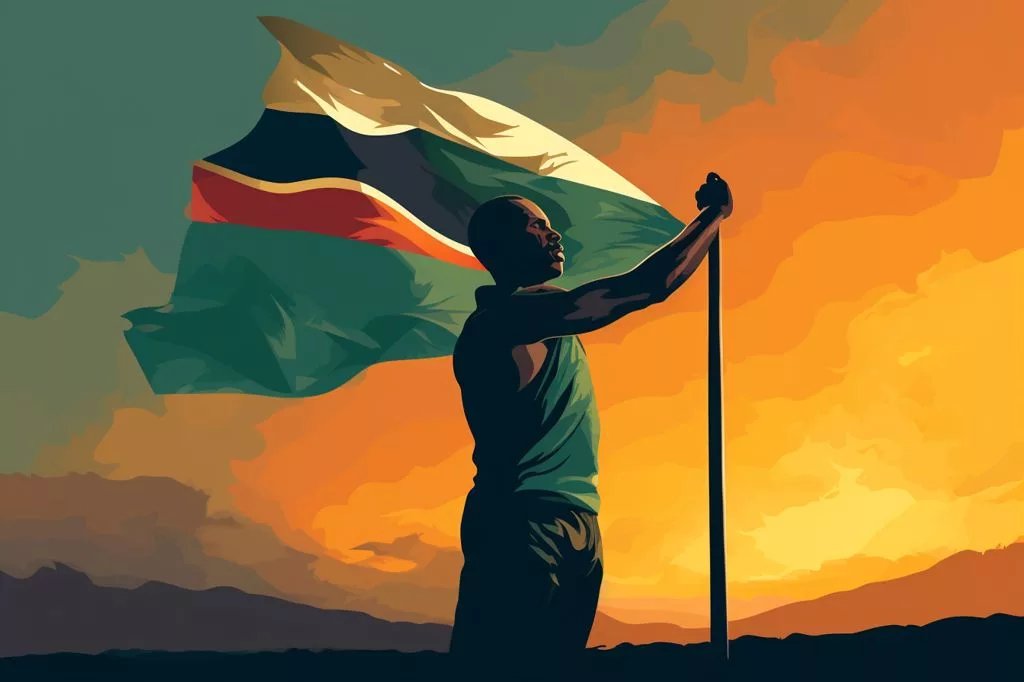The Department of Public Works and Infrastructure is hosting a two-day indaba in Pretoria from 10-11 October 2023 to evaluate the Expanded Public Works Programme’s Phase 4 and plan for Phase 5. Stakeholders from various sectors, including government, civil society, and the private sector, will create a business plan for the new phase, with the goal of reducing unemployment, providing skills training, and social services. By exchanging knowledge and experiences, participants will shape the program’s future, ensuring its continued effectiveness in addressing South Africa’s socio-economic challenges.
From 10-11 October 2023, the Minister and Deputy Minister of Public Works and Infrastructure (DPWI), Honourable Sihle Zikalala and Honourable Bernice Swarts, will lead a two-day indaba in Pretoria. The gathering’s central focus is the reconceptualization and redesign of the Expanded Public Works Programme (EPWP) for the future. Stakeholders from various sectors will join together to brainstorm and develop a business plan for the program’s fifth phase.
The EPWP has been a crucial initiative in South Africa, offering job opportunities and skills development for the unemployed. As the program enters a new stage, reflecting on its past achievements and challenges is necessary to ensure its ongoing effectiveness in meeting the nation’s socio-economic requirements.
The indaba will begin on day one with an opening address from Minister Zikalala at 9:00 am at GCIS Tshedimosetso House in Hatfield, Pretoria. Deputy Minister Swarts will close the event at 10:00 am on the second day. Media representatives are encouraged to attend and cover the proceedings.
Evaluating EPWP Phase 4 and Planning for Phase 5
This indaba will evaluate the successes of EPWP Phase 4 and identify areas for growth and innovation as the program transitions to Phase 5. Throughout the meeting, stakeholders representing various levels of government, civil society, and the private sector will contribute to the creation of a business plan for the new phase. The final plan will be submitted for Cabinet approval before the year’s end.
The EPWP has played a significant role in reducing unemployment, particularly for South Africa’s youth. Through temporary work opportunities, skills training, and social services, the program has been a vital part of the country’s overall strategy for addressing poverty, inequality, and joblessness.
A successful indaba will ensure the continued progress and evolution of the EPWP as it prepares for its fifth phase. Stakeholders will participate in meaningful discussions about the program’s future direction and contribute their expertise in formulating a solid business plan. By gathering perspectives from various sectors, the meeting aims to establish a comprehensive and inclusive strategy for the program’s next phase.
Reflecting on Past Successes and Shaping the Future of EPWP
The EPWP has experienced several transformations over the years to stay relevant in South Africa’s evolving socio-economic environment. The first phase, initiated in 2004, concentrated on infrastructure, environment, culture, and social sectors. Subsequent iterations of the program extended to include non-state initiatives and the incorporation of community-based projects.
The indaba provides an excellent platform for participants to exchange their experiences and insights, helping to shape the EPWP’s future. By engaging in open dialogue and collaboration, stakeholders from diverse backgrounds can contribute to the program’s evolution, ensuring its continued value in addressing South Africa’s pressing socio-economic challenges.
As the EPWP embarks on its fifth phase, the indaba in Pretoria serves as an essential opportunity for stakeholders to reflect on the program’s successes and challenges to date. By pooling their collective knowledge, they will collaborate to create a comprehensive business plan for Phase 5, guiding the initiative’s future. This plan will play a crucial role in supporting the ongoing growth and effectiveness of the EPWP in addressing South Africa’s unemployed population‘s needs.
In conclusion, as South Africa advances in tackling its socio-economic challenges, the EPWP remains a beacon of hope for many jobless citizens. The upcoming indaba will be a pivotal moment for the program’s future, with stakeholders uniting to ensure its continued success and relevance. Through teamwork and shared expertise, the event will lay the groundwork for the EPWP’s next phase, ensuring the program remains a vital resource for many South Africans seeking work and skills development opportunities.
What is the purpose of the two-day indaba being hosted by the Department of Public Works and Infrastructure?
The purpose of the two-day indaba is to evaluate the Expanded Public Works Programme’s Phase 4 and plan for Phase 5. Stakeholders from various sectors will create a business plan for the new phase, with the goal of reducing unemployment, providing skills training, and social services.
Who will be participating in the indaba?
Stakeholders from various sectors, including government, civil society, and the private sector, will be participating in the indaba.
When and where will the indaba take place?
The indaba will take place on 10-11 October 2023 in Pretoria, with the opening address from Minister Zikalala at 9:00 am at GCIS Tshedimosetso House in Hatfield, Pretoria.
What is the Expanded Public Works Programme (EPWP)?
The Expanded Public Works Programme (EPWP) is an initiative in South Africa that offers job opportunities and skills development for the unemployed. It has been a crucial part of the country’s overall strategy for addressing poverty, inequality, and joblessness.
What is the goal of the EPWP?
The goal of the EPWP is to reduce unemployment, provide skills training, and social services.
What will be the outcome of the indaba?
The outcome of the indaba will be a business plan for the EPWP’s Phase 5. The plan will be submitted for Cabinet approval before the year’s end.
What is the history of the EPWP?
The EPWP has experienced several transformations over the years to stay relevant in South Africa’s evolving socio-economic environment. The first phase, initiated in 2004, concentrated on infrastructure, environment, culture, and social sectors. Subsequent iterations of the program extended to include non-state initiatives and the incorporation of community-based projects.
Why is the indaba important for the EPWP’s future?
The indaba is important for the EPWP’s future as it provides an opportunity for stakeholders to reflect on the program’s successes and challenges to date and collaborate to create a comprehensive business plan for its next phase. By pooling their collective knowledge, stakeholders can ensure the program’s continued value in addressing South Africa’s pressing socio-economic challenges.












